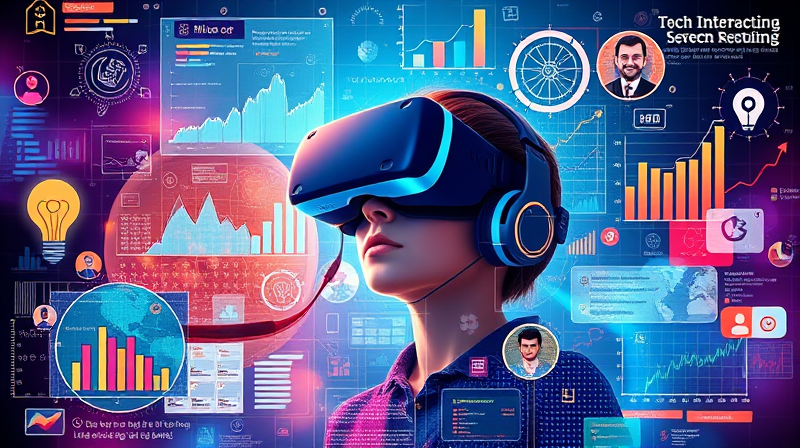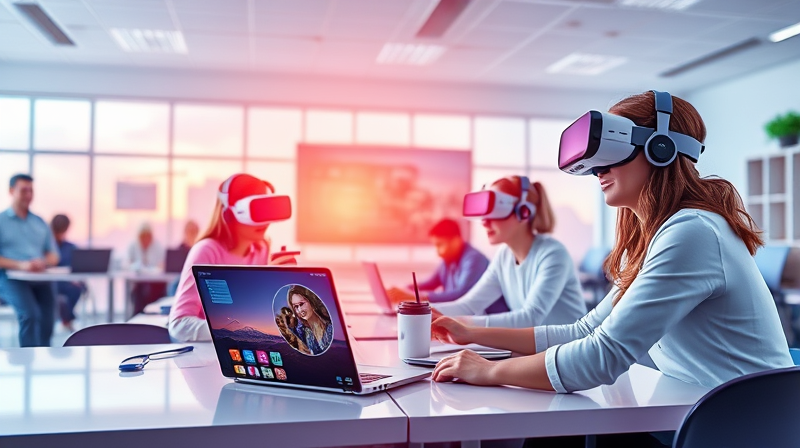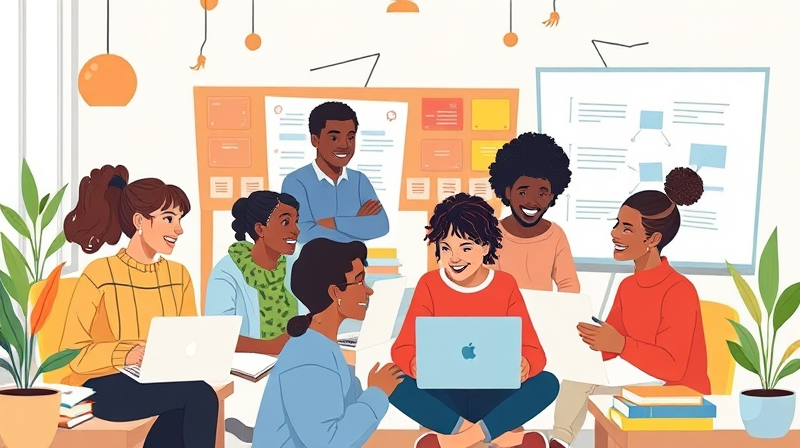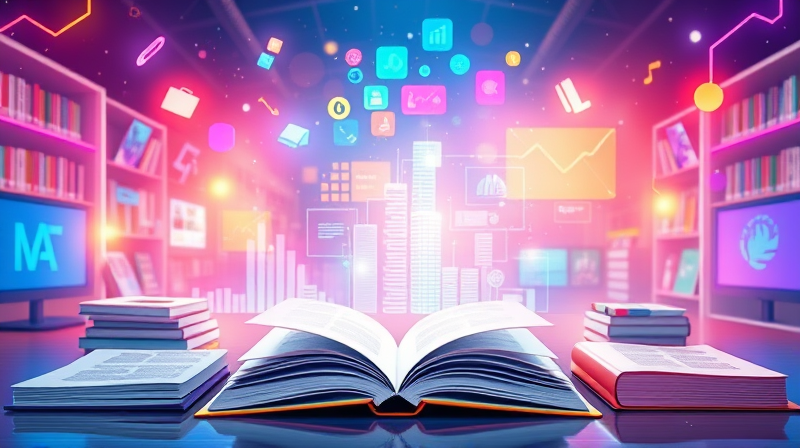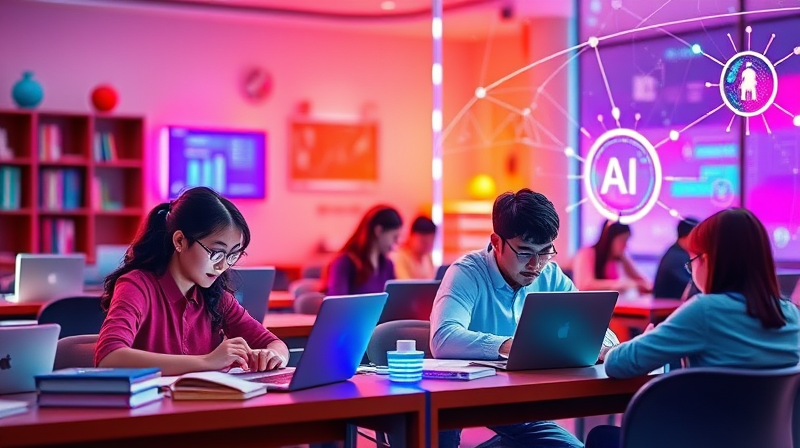In the era of rapid technological advancement, students and educators are experiencing a paradigm shift in learning methods. The integration of innovative tech tools not only modernizes education but also makes studying an engaging, interactive journey. As technology continues to evolve, so do the strategies for enhanced learning, making it crucial to adapt and experiment with these new methodologies.
This article explores the transformative potential of tech tools designed to foster a deeper, more personalized learning experience. The use of artificial intelligence, gamification, virtual reality, and various collaborative platforms is reshaping the way we study. Embracing these technologies can transform a mundane study routine into an inspiring process of continuous discovery and innovation.
Exploring the Benefits of Tech-Enhanced Learning
Interactive learning goes beyond the traditional approach of reading textbooks and attending lectures. It is about engaging all the senses to make learning more dynamic and enjoyable. With the help of advanced tech tools, students can access a wealth of information that is easily digestible and immediately applicable.
One significant advantage of tech-enhanced learning is increased engagement. Tools like gamified quizzes and interactive assignments capture the students' interest, making the study material more relatable. Additionally, immersive technologies such as virtual reality (VR) allow students to experience historical events or scientific experiments first-hand rather than just reading about them.
- Interactive and Personalized Learning: Platforms powered by artificial intelligence, like those that analyze and summarize information, enable personalized learning experiences tailored to individual strengths and weaknesses.
- Immersive Experiences: Gamification and immersive technology tools drive curiosity and hands-on practice, transforming learning into an adventurous exploration.
- Collaborative Possibilities: With online platforms, students can easily connect with peers around the world, fostering a diverse learning community where ideas and perspectives are freely exchanged.
These benefits contribute to improved retention of information and a more motivated approach to facing academic challenges. The synergy between technology and traditional teaching methods leads to an unmatched and holistic learning experience.
Innovative Tools and Strategies Shaping the Future of Education
Several groundbreaking tools are at the forefront of this educational revolution. For instance, AI-powered study platforms can analyze large volumes of academic content, providing summaries and creating custom study guides that cater to the needs of every learner. These tools not only assist with efficient study habits but also alert students to areas that may need additional focus.
Another transformative trend is the gamification of education. Through interactive platforms like quiz-based apps, learning becomes a competitive yet fun experience. These applications encourage repetition and quick recall of information, thereby reinforcing learning in a way that traditional methods may not achieve. The inclusion of immersive technologies such as virtual and augmented reality enhances this effect by allowing students to interact with digital environments in realistic ways.
Collaborative online platforms further bolster the learning process by enabling teamwork that transcends physical boundaries. These tools make it possible for students to work together in real time from different parts of the globe. Whether it is through shared documents or interactive video sessions, collaboration remains a cornerstone of modern education.
Moreover, the application of advanced methods such as the flipped classroom allows for more interactive in-class sessions. Pre-recorded lectures and online assignments give students the freedom to explore content at their own pace before coming together to discuss and solve complex problems. This method transforms the typical classroom environment into a highly interactive forum for intellectual exchange.
Practical Tips for Adopting Tech Tools in Your Study Routine
Though the array of tools available today is vast, it is important to integrate them gradually into your study routine. Starting small by incorporating one or two tech tools at a time can help prevent overwhelming adjustments. For beginners, apps that offer immediate feedback on performance or interactive quizzes can provide an excellent introduction to the benefits of digital learning assistance.
It is also wise to combine these innovative tools with traditional study methods. For example, while a VR headset might provide immersive experiences in scientific laboratories, textbooks and lecture notes can still offer a more structured approach to learning. The fusion of these methodologies can result in a richer, more balanced educational experience.
Another critical aspect of tech-based learning is the ability to receive continuous feedback. Many platforms not only monitor progress but also guide you to focus on areas that require improvement. This kind of adaptive learning ensures that no student is left behind and that every weakness is promptly addressed.
Effective learning also involves cooperation. Platforms that support group discussions and collaborative projects can help you connect with like-minded peers, share insights, and build a community of learners who motivate each other. Remote study becomes less isolating when supported by a network of engaged and interactive study partners.
As we look to the future, it is evident that technology will continue to play an instrumental role in shaping the educational landscape. Its ability to adapt to individual learning styles, provide immediate insights, and transform challenging concepts into approachable ideas stands as a testament to its potential. Adopting technology in your study routine is not just about keeping up with trends—it is about unlocking a more efficient, interactive, and enjoyable learning experience.
In summary, integrating tech tools in a study routine sets the stage for a new era of education. By leveraging interactive learning platforms, personalized feedback systems, and collaborative digital environments, both students and educators can embrace more dynamic, effective ways of learning. The journey has just begun, and the promise of enhanced education through technology is as inspiring as it is transformative.

